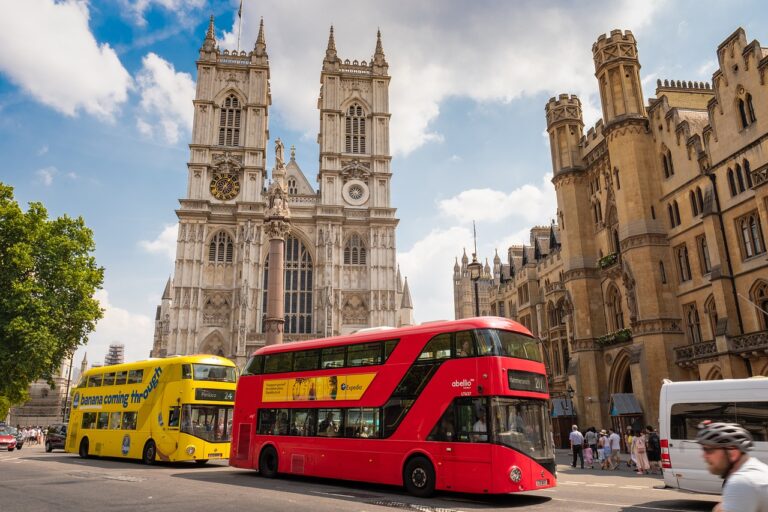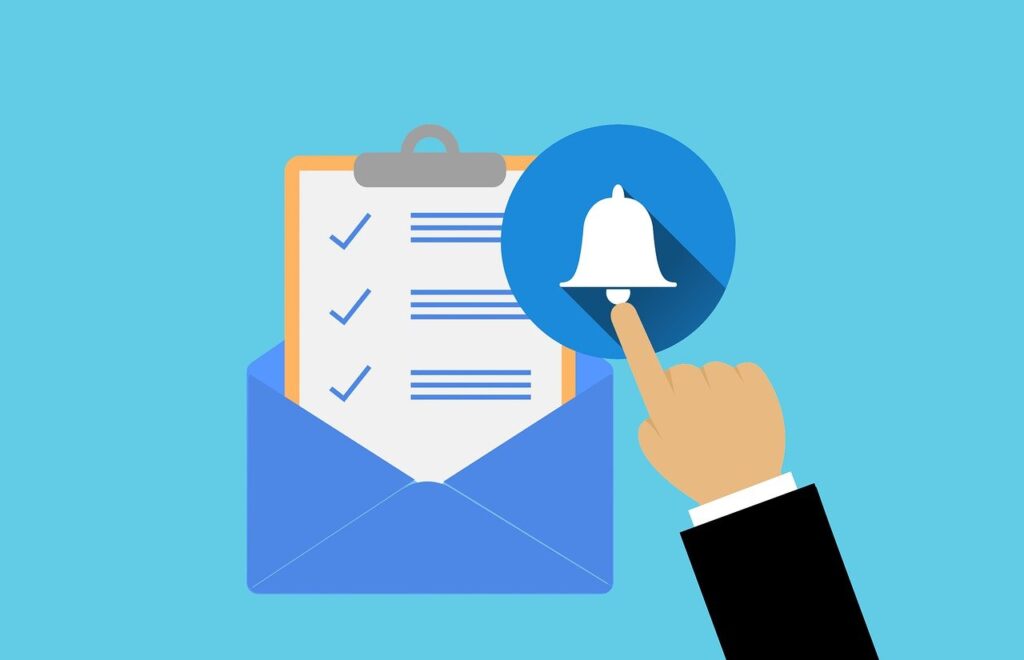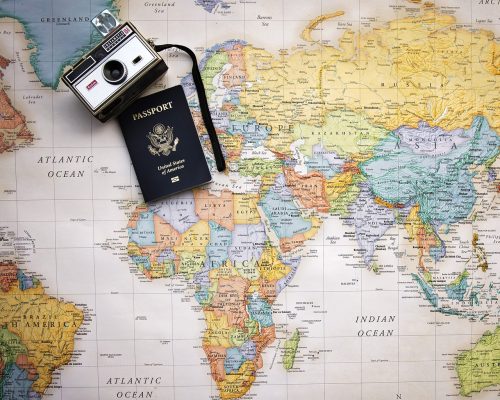Introduction
The tourism and travel industry is experiencing a significant transformation, thanks to advancements in technology. Among these innovations, chatbots have emerged as game-changers, revolutionizing how businesses in the sector interact with customers and manage operations. In this blog, we’ll explore the impact of chatbots on streamlining travel experiences and enhancing customer satisfaction.
What are Travel Chatbots?
Travel chatbots are artificial intelligence (AI) powered virtual assistants designed to assist travelers with various aspects of their travel planning and journey.
They utilize natural language processing (NLP) to understand and respond to user queries in a conversational manner, making them user-friendly and efficient tools for the travel industry.
They assist with tasks like booking flights, finding accommodations, and providing travel recommendations, making the travel experience smoother and more enjoyable.

Benefits of Chatbot for the Travel Industry
1. Enhanced Cross-selling and Upselling
Chatbots play a crucial role in driving revenue for travel businesses through cross-selling and upselling opportunities. By analyzing customer preferences and behaviors, chatbots can recommend additional services such as car rentals, travel insurance, and tour packages.
This personalized approach not only enhances the customer experience by offering relevant and convenient options but also significantly boosts ancillary sales and overall revenue generation.
For example, a chatbot can suggest a car rental service when a customer books a flight, or offer travel insurance options during the checkout process. Additionally, chatbots can promote special deals on local tours and activities that align with the traveler’s interests.
By leveraging data-driven insights, chatbots ensure that the recommendations are timely and appealing, increasing the likelihood of additional purchases. This strategic use of chatbots enhances both customer satisfaction and business profitability, making them an invaluable tool in the travel industry.
2. Personalized Customer Assistance
Chatbots in the travel industry excel at providing personalized customer assistance around the clock. They are equipped to help travelers find the best flight deals, suggest popular destinations based on individual preferences, and offer local recommendations. By leveraging advanced algorithms and user data, chatbots can deliver tailored advice, enhancing the travel planning experience.
These intelligent assistants simplify the booking process, allowing users to compare prices, check availability, and secure reservations through a single interface. This seamless service reduces the time and effort travelers spend on organizing their trips, making the entire process more efficient and enjoyable.
Moreover, chatbots provide real-time updates on flight statuses, gate changes, weather conditions, and travel advisories, ensuring that travelers are well-informed at all times. This immediate access to crucial information helps travelers make timely decisions and avoid potential disruptions.
3. Real-time Updates and Notifications
One of the key advantages of chatbots is their ability to provide real-time updates and notifications. They keep travelers informed about flight status alerts, gate changes, weather updates, and travel advisories, ensuring travelers are always aware of important information.
This capability minimizes uncertainties and enhances travel preparedness, allowing travelers to make timely decisions and adjustments to their plans.By offering instant access to critical updates, chatbots help prevent disruptions and reduce stress, making the travel experience smoother and more enjoyable.
Whether it’s a sudden gate change or a weather delay, travelers can rely on chatbots to deliver the latest information directly to their devices. This proactive communication ensures that travelers are well-prepared and can respond swiftly to any changes, significantly improving overall travel efficiency and satisfaction.

4. Improved Operational Efficiency
Behind the scenes, chatbots significantly improve operational efficiency for travel companies. They automate routine tasks such as itinerary management, booking confirmations, and payment processing, streamlining operations and reducing the workload for human agents.
This automation allows human staff to focus on more complex customer inquiries and personalized services, enhancing the overall customer experience. By handling repetitive and time-consuming tasks, chatbots ensure that processes are completed quickly and accurately, minimizing the risk of errors and delays.
For instance, they can instantly send booking confirmations, manage payment transactions, and update itineraries in real-time, ensuring travelers receive prompt and reliable service.
5. Language Support
Chatbots offer the unique advantage of communicating in multiple languages, making them highly accessible to a diverse global audience. This multilingual capability is particularly beneficial for travelers navigating foreign destinations, as it ensures they can receive assistance and information in their preferred language, enhancing their overall comfort and understanding.
By accommodating different languages, chatbots eliminate language barriers that often hinder communication and comprehension. Travelers can interact with chatbots confidently, knowing they can express their needs and receive accurate responses in a language they are familiar with. This fosters a more seamless and enjoyable travel experience, promoting greater satisfaction and engagement.
Moreover, multilingual chat bots contribute to inclusivity and diversity in the travel industry, catering to the needs of travelers from various linguistic backgrounds. Whether it’s seeking directions, accessing local recommendations, or resolving issues, chatbots facilitate clear and effective communication across language boundaries, ultimately enhancing the quality of service and support provided to global travelers.
6. Instant Customer Support
In the event of itinerary changes, cancellations, or emergencies, chatbots provide instant customer support, ensuring travelers receive timely assistance. Whether it involves rebooking a flight, rescheduling a tour, or seeking help with lost luggage, travelers can quickly reach out to chatbots for immediate solutions.
This capability reduces stress and provides greater peace of mind, as travelers are not left waiting for human agents to become available. Chatbots’ ability to offer real-time support streamlines the resolution process, making it more efficient and user-friendly.
By handling these urgent matters promptly, chatbots enhance the overall travel experience, ensuring that disruptions are minimized and travelers can continue their journeys with minimal inconvenience. This immediate response and support capability significantly boosts customer satisfaction, demonstrating the invaluable role of chatbots in modern travel.

The Future of Travel with Chatbots
As technology evolves, chatbots will become increasingly vital in shaping the future of travel. Advancements in natural language processing (NLP), artificial intelligence (AI), and machine learning will significantly enhance chatbots’ capabilities, enabling them to provide even more sophisticated services.
Future chatbots will be able to offer real-time language translation, breaking down communication barriers and making international travel smoother and more accessible. This feature will be particularly beneficial in providing support and information to travelers in their native languages, improving their overall experience.
Virtual tours are another exciting possibility. Chatbots equipped with augmented reality (AR) and virtual reality (VR) technologies could offer immersive previews of destinations, accommodations, and attractions, helping travelers make more informed decisions. These virtual tours could provide a unique and engaging way to explore options before committing to a booking.

Predictive travel recommendations will also become more refined. By analyzing vast amounts of data, including travel trends, personal preferences, and historical behavior, chatbots will be able to suggest highly personalized itineraries and experiences. This predictive capability will allow travelers to discover new destinations and activities tailored to their interests, enhancing the planning process and making travel more enjoyable.
In summary, the future of chatbots in travel looks promising, with advancements in NLP, AI, and machine learning set to deliver more sophisticated, personalized, and immersive experiences. As these technologies develop, chatbots will continue to revolutionize the travel industry, making journeys smoother, more enjoyable, and highly tailored to individual needs.
Conclusion
In conclusion, chatbots are revolutionizing the tourism and travel industry by streamlining processes, enhancing customer experiences, and driving business growth. From personalized assistance and seamless booking to real-time updates and operational efficiency, chatbots are reshaping how travelers plan, book, and experience their journeys. As travelers’ expectations continue to evolve, travel businesses that embrace chatbot technology will stay ahead of the curve and deliver exceptional travel experiences in the digital age.